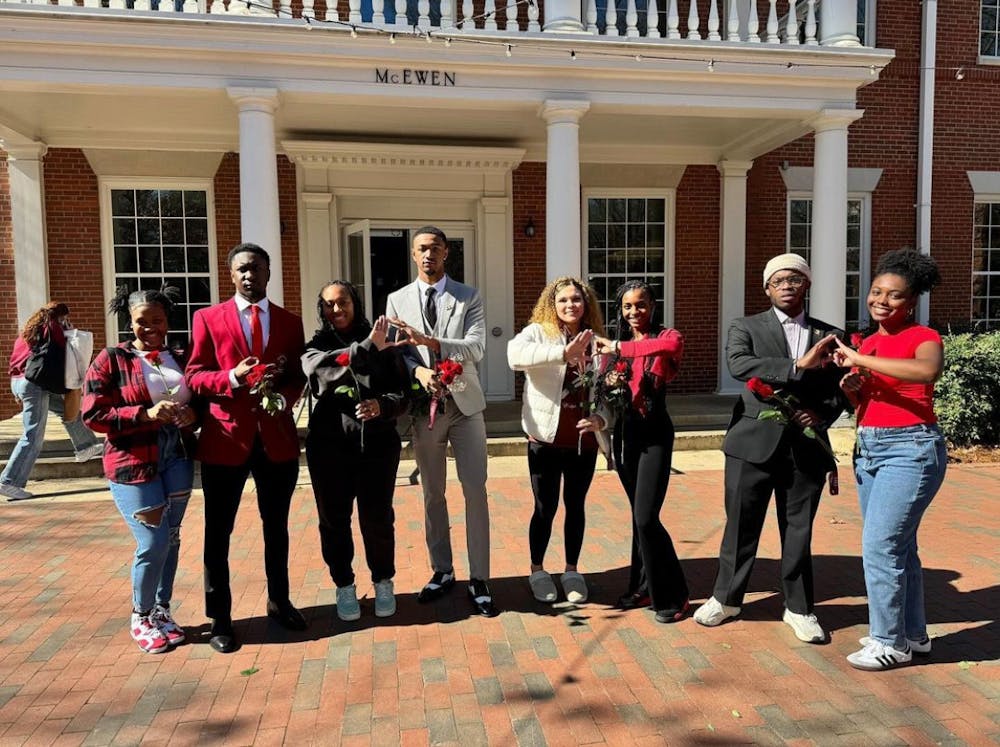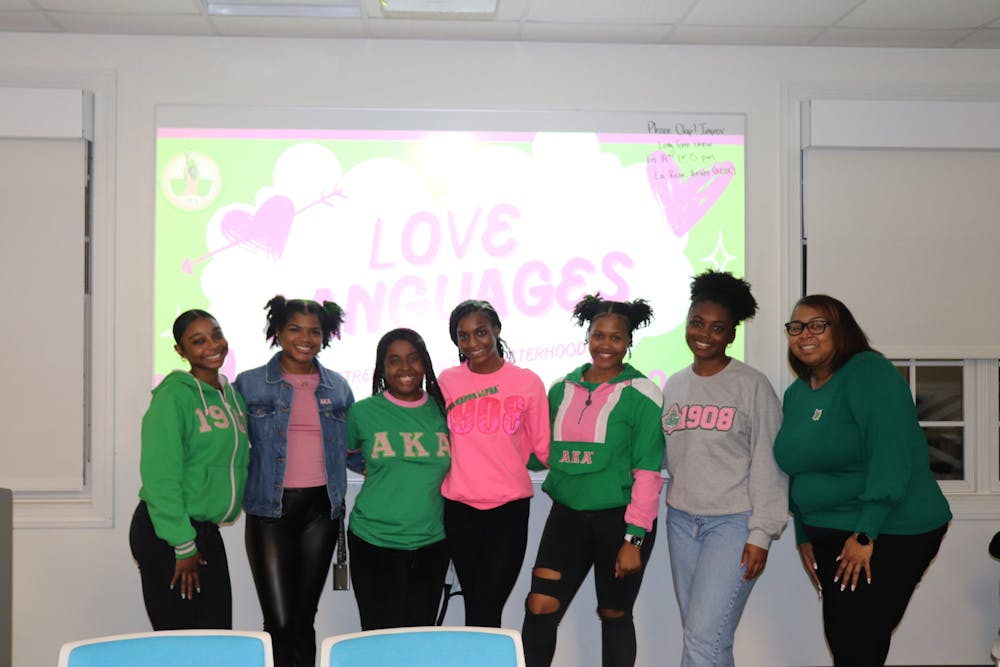Sisterhood is a big appeal of Greek life for Aleezah Adams, president of the Black Student Union and member of Delta Sigma Theta Sorority Inc.
“I really loved the sisterhood that Delta provides me with. The dedication to the community, especially the black community, and giving back was what really attracted me,” Adams said.
Adams crossed Delta Sigma Theta in the spring of 2023 of her junior year. Her sorority is a part of the National PanHellenic Council. NPHC, also known as the Divine Nine, is a collection of nine historically Black greek letter organizations. It comprises five fraternities and four sororities, and on Elon’s campus, there are six active chapters—Alpha Phi Alpha, Omega Psi Phi, Kappa Alpha Psi, Phi Beta Sigma, Alpha Kappa Alpha and Delta Sigma Theta.
While they are their own individual organizations, they work together on some events to build community. Adams said the support NPHC organizations provide the Elon community, especially the Black community, is crucial.
“I think NPHC collectively provides a space for Black students to come and learn more about culture, and everyone in NPHC prides themselves on service and uplifting one another,” Adams said.

The greek organizations at Elon focus on service in the Alamance County community. In the past, they have orchestrated drives for clothes, school supplies, food, and feminine products, as well as events to help community members with voter registration and writing to Congress.
Darius Harris, a member of the Elon football team and Omega Psi Phi Fraternity Inc. said another type of service NPHC organizations provide is a sense of belonging for many students in the Black community as prominent figures on campus.
“I believe we all help to show that although you may not feel like you belong, you are still wanted here, and you will always have a safe place with us," Harris said.
According to Elon University’s Fraternity and Sorority page, 42% of undergraduate students are involved in greek life on campus. There are 25 organizations on campus and three different councils—Interfraternal council, Panhellenic Association and National PanHellenic Council. For some students, growing up around greek life isn’t uncommon, others have family members who participated or are still active members of organizations in graduate chapters. That’s the case for senior, Dylan Tucker, whose father is a member of Phi Beta Sigma Fraternity Inc, making him a legacy.
“Growing up, that was just what I was around,” Tucker said. “My uncles were Sigmas, and my dad too. It’s kind of why I even looked into joining a Black greek letter organization in the first place.”
Senior Ja’Dun Michael, member of Kappa Alpha Psi Fraternity Inc, said he saw how his mentors and people he admired who belonged to Kappa Alpha Psi carried themselves and knew that it was the organization for him.
“One of my mentors is a member of the frat. I saw the way he and others I’d met carried themselves and treated others,” Michael said. “It was consistent amongst each member, which essentially influenced me.”
Some students who had no knowledge of greek life still find their way into these organizations. Senior Demetria Hall, a member of Alpha Kappa Alpha Sorority Inc., didn’t have any knowledge about Greek life until she went to her parent's homecoming.
“They went to Tuskegee, and one year we went to their homecoming,” Hall said. “I just remember being on the yard and seeing all these colors and wondering, ‘What is all this?’” At the time, Demetria didn’t know that in a couple of years, she’d be a member of one of the organizations she looked at in awe.
According to the U.S. Small Business Administration, the National PanHellenic Council has over 2.5 million active members across the U.S., with chapters spanning across all 50 states. There are collegiate and graduate chapters highlighting the lifetime commitment these organizations require.
Joseph Glover, an adviser for the Divine 9 organizations and a graduate chapter member of Alpha Phi Alpha Fraternity Inc, said one of the aspects of NPHC organizations that sets them apart from other student groups is that it’s not something that stops after college.
“These organizations are a lifelong commitment. Oftentimes, you won’t see that in IFC or PA organizations. You have the opportunity to join even after college.” Glover said. “Another thing these organizations, I think, often provide is a sense of purpose, especially when students think about why they join. It pushes them to do and be better.”
These organizations have deep ties to historical periods and people in U.S. history. Civil Rights leader Martin Luther King Jr. was a member of Alpha Phi Alpha, Shirley Chisom – founder of the first black caucus and the first black woman to run for the presidency — was a member of Delta Sigma Theta and Vice President Kamala Harris is a member of Alpha Kappa Alpha.
Ahmarion McLeod, a junior and member of Alpha Phi Alpha, believes having these historical figures that were members in these organizations promotes more involvement from younger generations and strengthens the foundations of his organization.
“It makes them see that we stand firmly on the foundation of being dedicated to developing leaders, promoting brotherhood, encouraging academic excellence and service for minority communities. And it promotes involvement,” McLeod said.


